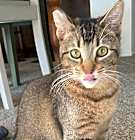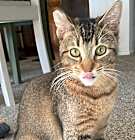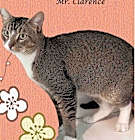Somali cats are considered medium-sized felines, weighing six to 10 pounds and standing around 8 to 10 inches tall. Somali cats might appear larger than their weight suggests due to their semi-long-haired coat, which adds visual volume.

$350 in savings for new adopters
PetSmart is offering new adopters a free adoption kit. Just show your adoption paperwork in-store to redeem!
PetSmart is offering new adopters a free adoption kit. Just show your adoption paperwork in-store to redeem!
Shop Now

Shop Now











